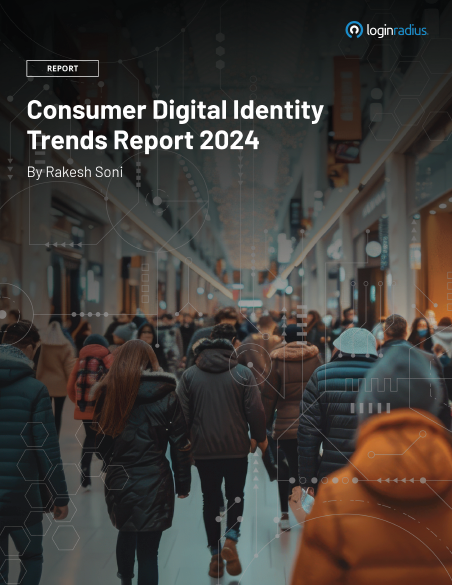Introduction
Marketers are no longer in the business of attracting customers; they're responsible for keeping them engaged. That shift has led to a new role in marketing — user authentication.
Authentication is the process of confirming the identity of a user. In the digital world, it's used to verify that someone is who they say they are and that their information is accurate.
It's an important responsibility because it helps marketers protect their brands from fraud and abuse. From phishing scams to fake reviews, there are many ways scammers try to game the system to steal money or reputations.
What is User Authentication?
User authentication is the process of verifying that a user is who they claim to be.
Authentication is the most important security feature any application can have because it's the gateway through which users interact with your data. Without proper authentication, an attacker could impersonate your users and access sensitive information or perform unauthorised actions on their behalf.
Moreover, authentication is often confused with authorization, which determines whether a user has the right to perform an action on a resource. That's why it's best to think of authentication as "proving you are who you say you are" and authorisation as "determining what actions can be performed."
This distinction is important because some authentication mechanisms provide very strong guarantees about who can perform certain actions, while others only provide weaker guarantees about behaviour over time. For example, someone who knows your password may be able to access your account now but not later; however, someone who has been issued an RSA token or a biometric fingerprint reader will always be able to access your account until they lose possession of their device or their fingerprint changes significantly enough that their device no longer recognizes them.
How Marketers Can Leverage User Authentication?
Authentication is important in marketing because it helps to ensure that only real users get access to your content and products. If you allow anonymous access to your website or application, then anyone could be a potential customer of your product. However, only those who have registered themselves with you can access your content and services if you use authentication.
Authentication helps marketers in many ways:
1. Reduce fraud with customer verification.
User authentication is the process of collecting information about a user's identity to verify that they are who they claim to be. By authenticating users, you can ensure that only authorized users have access to your website or platform. This helps protect your site from fraud, abuse, and other security issues that might arise if it were not securely protected.
A Good Read: 5 Ways to Improve Your Customer Verification Process
2. Improve customer experience.
User authentication allows marketers to better understand who their customers are and what they want. This can help improve the overall customer experience. For example, if you’re an online retailer, it would be helpful to know if a person has purchased from your site before or not so that you can tailor their experience accordingly.
When prospective customers see that you're taking steps to verify their identities before doing business with them, it sends a signal that you're serious about security and privacy — which can build trust among potential buyers who might otherwise be wary of providing personal information to an unknown entity online.
3. Boost conversion rates.
Authentication tools can help boost conversion rates by reducing the number of duplicate account registrations and false positives. When a user enters their email address or phone number, they'll receive a confirmation code via text or email to verify that they're not registering multiple accounts with the same information. This helps reduce abandoned shopping carts and returns while also increasing conversions.
The best part? You don't need to build any additional forms or create new pages on your site — you can just add a login box and ask people to log in before they give you their feedback. Using user authentication in this way is particularly useful if you're looking for feedback on something specific, like an upcoming product launch or a new feature that's not yet available publicly.
4. Increase customer retention.
Customer retention is one of the biggest challenges in the industry today. Customers are constantly being bombarded by new products, offers, and promotions. It’s difficult to keep them engaged and coming back to your brand.
User authentication allows marketers to improve customer retention by offering them a more personalized experience. By leveraging user authentication, marketers can tailor their marketing efforts toward their existing customers.
5. Improve content personalization.
By identifying their users' preferences, marketers can create personalized content that resonates with them based on their previous actions on the site. For example, if someone has visited a certain page before and viewed a certain product, they will likely be interested in related products as well. With this information at hand, it's easier for brands to cater to individual needs by showing them relevant content and products over time that align with their interests.
By improving content personalization and increasing customer satisfaction, marketers can generate more revenue through repeat purchases and referrals from happy customers!
Wrapping Up
As the world becomes more connected, users have become increasingly more aware of their digital privacy. In fact, according to a recent study from Google and Ipsos, 70% of Americans are concerned about their online privacy.
Marketers need to strike a balance between user security and experience when it comes to user privacy. That means providing security services that won't frustrate customers who want to get the most out of their devices and applications.














